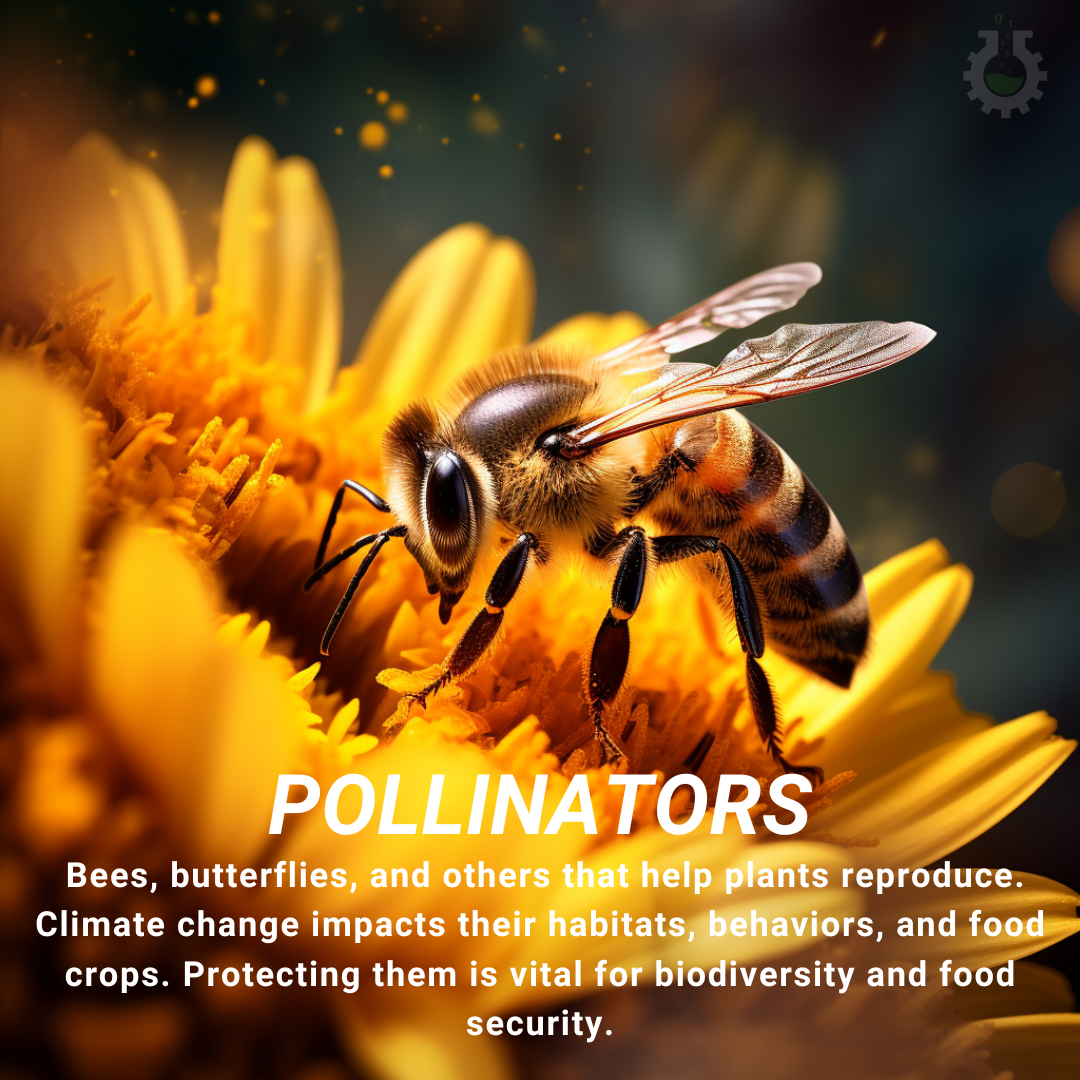September 28, 2023
Climate Change Poster Collection of the Day – Pollinators
Book a Demo
Today’s Climate Change Poster Collection focuses on Pollinators, the unsung heroes of our ecosystem, tirelessly working to facilitate the reproduction of various plant species. These vital animals transport pollen from the male anther of a flower to the female stigma, playing a critical role in plant fertilization. Their importance cannot be overstated, as they’re instrumental in the propagation of the plants that produce our food crops.
Among the array of pollinators, bees are perhaps the most recognized. These industrious insects are known for their pollen-carrying prowess. However, they are not the only players in the pollination game. A diverse group of animals, including birds, bats, and other insects, also function as pollinators, contributing to the rich tapestry of biodiversity.
Despite their essential role in our ecosystem, pollinators are under threat. Human activities such as habitat destruction and pesticide use have endangered the populations and diversity of these crucial creatures. As we encroach on their natural habitats and expose them to harmful chemicals, we risk losing the invaluable services they provide.
Understanding the process of pollination underscores the importance of these animals. Pollination is the transfer of pollen from the male to the female part of a plant, facilitating fertilization and seed production. This critical process can be facilitated by various means. Wind, water, and animals like bees, butterflies, birds, and bats can aid in the transfer of pollen.
Cross-pollination, which involves the transfer of pollen from one plant to another, is especially noteworthy. This process promotes genetic diversity among plants, leading to stronger, more resilient plant populations. Without it, many plant species would be more vulnerable to diseases and less adaptable to changing environmental conditions.
The process of pollination is fundamental for the formation of fruits and seeds. This is not only essential for humans, who rely on fruits and seeds for food, but also ensures the survival and continuation of plant species. The critical role that pollinators play in this process makes them indispensable to the planet’s ecological balance.
Pollinators are vital to our ecosystem, contributing to biodiversity, the food chain, and the survival of plant species. As we come to appreciate their importance, it’s crucial that we strive to protect them from the threats posed by human activities. Their role in pollination is one that cannot be replicated, making their conservation an urgent priority.
Discover an inspiring collection of climate change posters.



